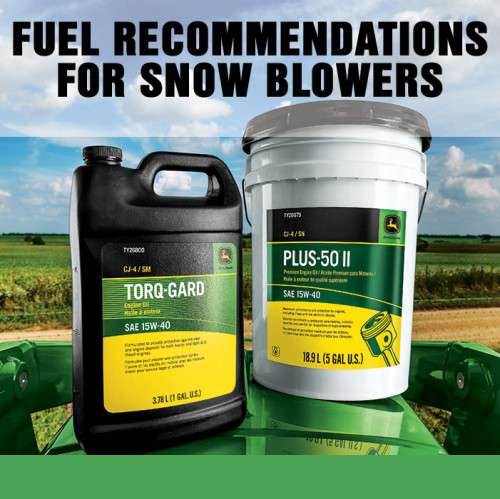If you take the time to properly care for your snow blower now, you should have little to no problems with starting your machine next winter. One of the most important things to do when caring for your snow blower is taking care of the fuel that goes inside the blower. If you’re not mindful of the fuel in your machine you may encounter starting or running problems and even damage to the fuel system. Use this guide to avoid fuel-related problems in your snow blower.
Store fuel properly
Store your fuel in a clean, plastic, sealed container approved for fuel storage to help prevent rust and metallic contaminants from entering the fuel system. Close the vent when not in use and store the container away from direct sunlight. Fuel will deteriorate faster when exposed to air and sunlight.
If it takes longer than 30 days to use the fuel in the container, add a fuel stabilizer when you fill the container.
If you do not use your snow blower much during the winter, add a fuel stabilizer to your fuel storage container
Gas left in your snow blower can deteriorate quickly, causing problems for your machine and the fuel system. If you make sure the fuel in your snow blower is stabilized, you will minimize the chances of deterioration and damage.
Do not use gasoline with more than 10% ethanol
Gasoline containing higher levels of ethanol is corrosive and attracts water, which can cause starting or running problems and damage to your snow blower’s fuel system. Engines produced for use in outdoor power equipment are not designed for gasoline with more than 10% ethanol.
Read your owner’s manual for information on the proper fuel to use in your snow blower.
Remove fuel for summer storage
Before storing your snow blower, drain the fuel out of your machine. There may still be fuel in the fuel line and carburetor so start your blower and allow it to run until no fuel is left in the machine.
Make sure there is no old fuel resting in your snow blower. Old fuel left in your snow blower during the off-season will deteriorate and cause problems for your machine. Your blower may not start or run properly and, in some cases, there will be damage to the fuel system.
Fuel Recommendations for Snow Blowers

